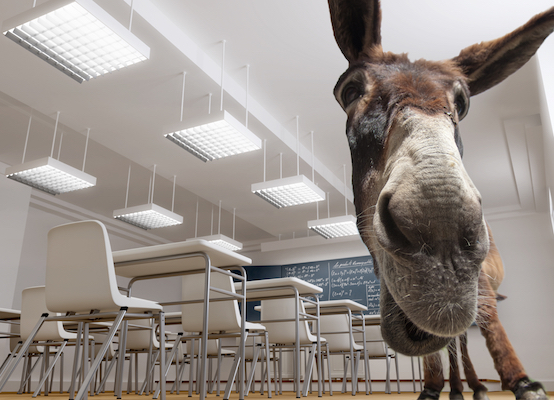Oy. Today’s Forward is asking us to compare Paul Simon and Bob Dylan.
My cred here: Have followed Paul Simon live and recorded since 1972, jesus, 39 years! (and S&G on LP before that). Straight through Songs from the Capeman, every new Paul Simon album dropped into my world like a letter from an old friend. Me and the girlfriend (the no-longer girlfriend; tale worthy of a Paul Simon song or, knowing Paul Simon, several) saw The Capeman on Broadway twice; we were rewarded with a last-minute invitation to the cast party closing night because Eddie Simon, whom we chatted up in the aisle, was thrilled to be recognized, not mistaken yet again for his big brother.
We also, the girlfriend and me, suffered a night in a crap Freeport, Long Island, motel so we could hear three evenings straight of Paul & Bob/Bob & Paul at Madison Square Garden and Jones Beach. That weekend proved Paul Simon should be honored by the comparison alone. Dylan was different every night: kaleidoscopic, charismatic, alluring and impenetrable. Paul and the hundred-fifty Africo-Brazilians behind him were note for note, gesture for gesture, fabulous, make no mistake. They sure didn’t. The act was outrageous, James Brown tight, and identical night after night, like watching a video.
Paul Simon still has the songwriting juice, his last two albums of glib, random ramblings about old age & new babies notwithstanding. But, as he once told The New Yorker’s David Remnick, kvetching about the challenge of duets with Bob Dylan, it’s “the words, the words.” His own words have ever veered from undervalued gems like “You’re the One” (available today for 1 cent at Amazon) to flaccid wise-assery like “Pigs, Sheep and Wolves” (on the same 1 cent CD). As tearful as “Sounds of Silence” or “Homeward Bound” may make tri-generational stadium crowds, they forget “We’ve Got a Groovy Thing Goin’ Baby.” (Simon, of course, is silently glad of this: It ain’t “A Hard Rain’s Gonna Fall.” I, meanwhile, admit I often sing “Groovy Thing” to myself, moving too fast down Morningside Avenue.)
Paul Simon concocts endless, seemingly effortless, wry incidents and accidents, not only in song but, though rarely acknowledged, in screenplay. He’s virtuously fearless of self-parody too: “Soft Parachutes” disrespects Simon & Garfunkel as deftly as “A Simple Desultory Philippic” did Bob Dylan. But his incidents rarely come to as sharp a point as, say, Dylan’s “Black Diamond Bay.” Why do God and son come to Earth in “Love and Hard Times” anyhow, only to split and make simultaneously self-aggrandizing and -effacing room for “an old songwriting cliché”?
Since Rhythm of the Saints, Simon’s serious lines have been obscure as Dylan’s, if usually to some cringingly obvious end: Consider “The Teacher,” “Beautiful,” or (department of boundless vocabulary) “So Beautiful or So What.” On the other hand, hook-hooky “boy in the bubble and the baby with the baboon heart” wants to say something about modern times but, as the bard himself might moan, “What? What?”
With respect to Simon’s self-promoted sincerity (see the recent interview in Rolling Stone), those who accuse Dylan of exploiting 1960s folk music generally ignore the fact that a lyrically sensitive Simon emerged only after Bob built a market for folk-pop. His eye always on “the marketplace, the marketplace” (Simon, again, to Remnick of The New Yorker), mid-60s Paul (“Jerry”) shlepped Artie (“Tom”) from doowop to full-frontally Queens-Jewish acoustic folk. As Bleecker Street displaced the Brill Building, so Everly ooh-baby danceables gave way to off-the-shelf angstunes like “I Am A Rock.” He’s nothing if not a professional.
Sigh. I love Paul Simon. I can watch One Trick Pony again and again; I hear “Hearts and Bones” coursing through “Graceland.” But while Simon fruitfully, brilliantly borrowed from obscure third-world, Zydeco and gospel artists, Bob Dylan, seeming to pay those musicians no heed, changed their music and their lives. Dylan didn’t lift tracks from Nashville; he became Nashville, and gospel, and Aaron Copland and Blind Willie McTell. I cherish my old packets of letters from Paul, and lord knows aspergersy Bob never talked to anyone but himself. Still, you don’t need a weatherman to know your windows are shaking, your walls rattling, and the words of the prophet have long faded therefrom. It’s sad as a lonely little wrinkled balloon, but Paul Simon–like pop paragons as varied and fine as Harold Arlen, Joni Mitchell and Paul McCartney–may be history. Dylan, incontrovertibly, still makes it.
Like this:
Like Loading...
